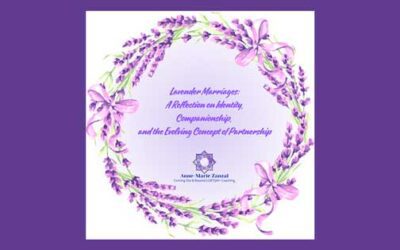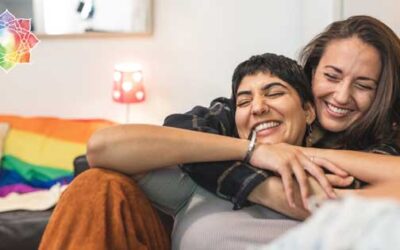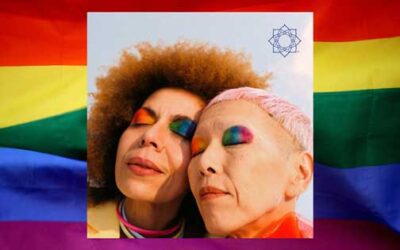The word “good: is one of those utilitarian words that can be a noun, adverb, or adjective. As a noun, it means “morally right.” It can also mean “a mysterious balance of good and evil” or “to benefit someone or something” as in, “She used her gardening skills for the good of the homeless shelter.” As an adverb, it means “well” or “I did not realize that you were a good cook.” As an adjective, it means to be approved of, as in, “She is a good woman.” Or it means having the qualities required for a particular role: “She is a good mom.”
How we define a “good guy” is very different than how we define a “good woman” When we think of this accolade for a man it means he is a good provider for his family, he doesn’t cheat, he is not physically or verbally abusive, he pays attention as a father and is a good neighbor to his community. This in itself is not a negative thing, but we often don’t apply the same standards to a man then we do to a woman. Women are held to a higher level of accountability.
The Emotional Pressure that Comes with Being Good
A good woman must be physically attractive, she often puts enormous pressure on herself to be thin. She must anticipate every physical and emotional need of her husband and she often works full time and then comes home and does a full day of labor around the house. Her needs are secondary to those of her spouse and children. A good woman, once she is married, is expected to make it work at all costs. Both parents are expected to stay “for the good of the children.”
In the interest of full disclosure, although I consider myself a feminist, I wholeheartedly bought into this paradigm. I had internalized a definition of what it means to be a “good woman” without any thought of what it would mean to me as a human being. Like the seeds of internalized homophobia, it was planted long ago by community, family, religion, friends, and yes, even, TV shows.
The Cost of Being “Good” Hurts
The by-product of coming out and divorcing severed the cord that existed within me to the paradigms that I must give up a huge piece of myself to maintain the illusion of all-American happy family. Yet there was also another piece of me that created this illusion, that wanted this for my life, that carefully constructed an image that would be seen by the world and I would have approval. This was an inherent need from my childhood as I sought approval for parents too caught up in their own dysfunction to have any energy left to give to their last child. In retrospect I spent the majority of my life seeking approval from others to fill a well that should have some sort of foundation in my childhood. The last time though with the approval experience was the ordination process in two different churches.
Facing Disapproval & Disappointment of Those I Love
The fear that gripped me as I contemplated leaving my marriage, that divorcing and coming out, is that I would actively garner disapproval from many people. Good girls HATE disapproval. I also identify as an adult child of an alcoholic or person who grew up in a chaotic home. We try so hard to be “good” or perfect. Somewhere inside of us is the mistaken belief if we do everything “correctly” the world will be a safe place and we will find happiness. Team this with the seeds of “good womanhood and the recipe for happiness” and it becomes a recipe for compartmentalization and denial of our true selves.
In my relationship with Sam, I had stepped outside the paradigm, and received swift disapproving retribution. Sam is black and he was my first love. Some of the perceived retribution was my own stuff, I realized that people do not care about my life, as much as I think they do. Some of us struggle with approval from the greater community, but most of us truly just want approval from the people we love. In my relationship with Sam, my Dad deeply disapproved and never met him. This was particularly hard because my Dad was the parent with whom I had a deeper emotional connection. Dad began to talk to me again once I left the relationship with Sam. This experience made me deeply afraid to step out of the paradigm.
Put Gayness in a Box for the Sake of Being “Good”
After my relationship with Sam ended in my early 20’s, I began to contemplate my gayness. Unknowingly traumatized by my Dad’s and other’s reaction to my relationship with Sam, I knew that I could not even risk losing connection with people I love again, so I put my gayness in a box on the top shelf of my metaphorical closet. I desperately did not want to be cast out again and so I was going to find an approved man and get married.
And I did, perfectionist to the core I created with my ex-husband, a life that on the outside looked enviable. Parts of it were, yet there was a duality that existed. Although I had married a “good guy” I also married someone who was not emotionally available and struggled to stay present in life in general. This was due to his own trauma, which he worked on a little, but then refused to go farther because it was too painful.
As a professional caregiver I understand that it was fear, just like my own, that held him back. He did not want to touch the careful created illusion he had of himself and his family. In retrospect this was the death knell of our marriage. Gay or not, I had worked so hard to understand and let go of the trauma of my childhood. As a wife it felt like he had chosen emotional safety over emotional intimacy. Yes, I am still a lesbian and we woudl have eventaully divorced anyway, but if he had chosen to work on these wounds, he may have navigated the divorce with less hostility towards me.
Sacrificing Ourselves for the Sake of “Goodness”
This is the paradigm most women in the world can identify. As women we are told if we have a “good guy” for a husband, then that should be enough to sustain us and we should not want more. Wanting more means that we are selfish and not a devoted wife and partner. So we stay. Disrupting our children’s lives so that we can create a life that fulfills and sustains us means that we are not a devoted mom. So we stay. A “good woman” never puts her needs before her spouse or family, because if she does she is a “bad” person. We do this in other areas of our lives as well, including our parents and extended families, our jobs. Where do you sacrifice for the sake of “goodness?”
Let’s strip the notions of “good” and “bad” from our vocabulary and what it means to be a woman, because these words do not leave any space for nuances or variations. It is a binary much like male and female. My marriage was not good nor bad. The straight life I lived and the lesbain life I live are neither good nor bad. My life as a mom had some very good parts, and some bad parts. There are definitely experiences with my kids I wish I could have a do over. I cannot one day be a “good” mom and the next be a “bad” because of a divorce or coming out.
Letting go of “Good” to Find an Authentic Fulfilling Life
My argument is that the notion of “goodness” is what holds us in places that might be ultimately very unfulfilling to our needs as human beings. We have to be willing to live life in the gray. Life is not black and white. Divorcing, coming out, moving away from children, ending a relationship, none of these things makes us a good or bad person. It just makes us human, trying to figure out what is good for us and our journey through this life.
Ultimately, although we can understand the irresponsibility and cruelty of labeling experiences or people simplistically, the patriarchal world does not. We can let go of the binary, but our world clings to a way of being that is becoming irrelevant for our younger generations. Letting go of the expectations of others and the need for approval ultimately is what this later in life journey is about, because living as a proud member of the LGBTQIA+ family we need to let go of the approval of others. Along with story sharing and community this is the key to unlocking our authentic selves.
Anne-Marie Zanzal, M.Div. is a later-in-life coach who works with people coming out later in life to the LGBTQIA+ community. You can find her at www.annemarieazanzal.com on Facebook at Anne-Marie Zanzal Coaching and on Instagram @annemariezanzal. Follow her board on Pinterest at Coming Out Support



